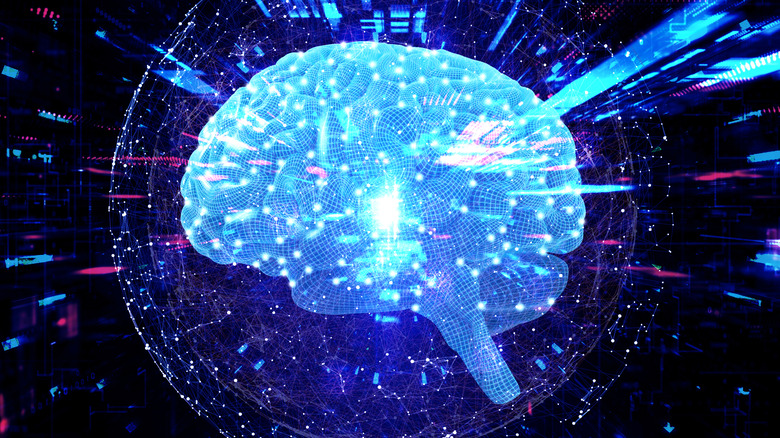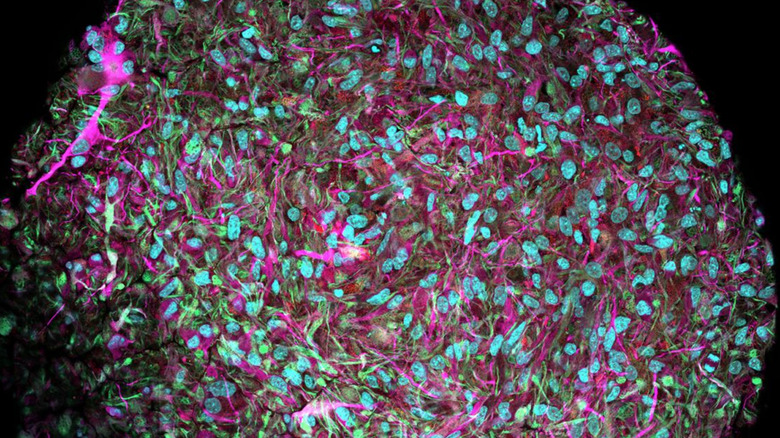Here's How Scientists Plan To Build Next-Gen Supercomputers With Real Brain Cells
For years, scientists have been studying the human brain to achieve the next computing breakthrough. Take, for example, neuromorphic computing chips, which are seen as an evolutionary leap for information storage and processing. A team of experts at the esteemed Johns Hopkins University is approaching the idea of biocomputing with brain cells at the center of their research to make the next big leap in computing.
The researchers are experimenting with brain organoids, which are three-dimensional cultures of brain cells that mimic the function of the fully developed organ, as the processing hub of biocomputing hardware. Dubbed "organoid intelligence," the lab-grown brain cell organoids involved in the project are capable of retaining core cognitive functions like memorization and learning.
The team points out that silicon-based computers are good at handling numbers, but they're not as good at learning as the human brain. Plus, the brain is vastly more energy efficient and the constituent neurons can store a dramatically higher quantity of information in a constrained space at the same time.
Small start with ambitious goals
At the moment, each organoid contains around 50,000 brain cells, but in order to achieve the desired level of computing prowess, the team is aiming to culture organoids packing around 10 million brain cells. At the same time, the research team is also working on pathway systems for effectively communicating with these organoids to relay information and understand what these cell clusters are thinking, in a manner of speaking.
"It is a flexible shell that is densely covered with tiny electrodes that can both pick up signals from the organoid, and transmit signals to it," explains Professor Thomas Hartung. The ultimate goal is to develop stimulation and recording tools to control interactions between the network of organoids.
As far as progress goes, the team has already demonstrated that a flat brain cell culture is capable of learning and playing the game of pong. The whole concept of "organoid intelligence" is still in its infancy, but the team working on it is confident that biological computing will revolutionize fields like drug testing research for neural disorders in the near future.

